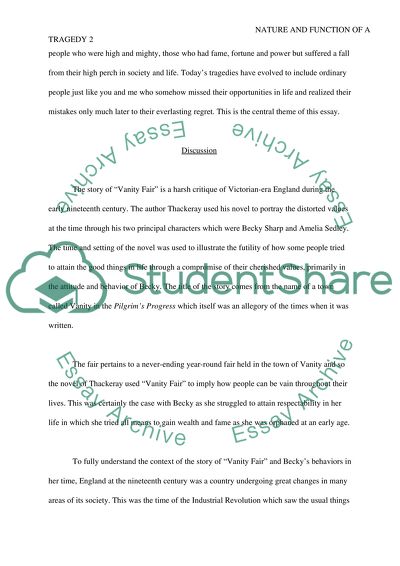Cite this document
(“Nature and Function of a Tragedy in Vanity Fair by William M Essay”, n.d.)
Retrieved from https://studentshare.org/literature/1422407-in-a-comparative-essay-analyze-the-nature-and
Retrieved from https://studentshare.org/literature/1422407-in-a-comparative-essay-analyze-the-nature-and
(Nature and Function of a Tragedy in Vanity Fair by William M Essay)
https://studentshare.org/literature/1422407-in-a-comparative-essay-analyze-the-nature-and.
https://studentshare.org/literature/1422407-in-a-comparative-essay-analyze-the-nature-and.
“Nature and Function of a Tragedy in Vanity Fair by William M Essay”, n.d. https://studentshare.org/literature/1422407-in-a-comparative-essay-analyze-the-nature-and.


